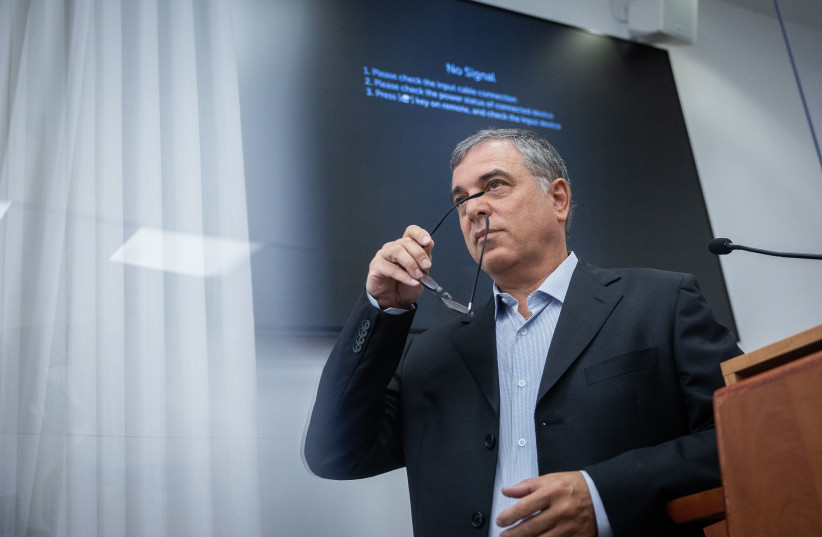Attorney-General Gali Baharav-Miara on Tuesday night ended her silence about the public corruption trial of former prime minister Benjamin Netanyahu which she has maintained since taking office in February and issued a statement strongly backing the prosecution team to continue on despite a major setback, noting there is still a strong chance of conviction.
Earlier Tuesday, the Jerusalem District Court rejected the prosecution’s key request to amend its Case 4000 Bezeq-Walla Affair indictment narrative. It approved a more minor request to amend the Case 1000 Illegal Gifts Affair narrative.
The rejection is a major setback for the prosecution, but the judges notably left the door open to a conviction using an esoteric provision of the law.
Baharav-Miara's move was far from expected. She had no involvement in filing the indictment and could have kept her head down and out of a controversial case which could crash and burn and which she now has ownership over as well.
The court did approve a more minor request to amend the Case 1000 Illegal Gifts Affair narrative.
The rejection on Tuesday was a major setback for the prosecution, but the judges notably left the door open to a conviction using an esoteric provision of the law.
The prosecution filed the request to amend the indictment on May 15, in a stunning reversal.
According to the request, the state would back off from giving an exact week when an alleged key meeting took place between Netanyahu and key prosecution witness Shlomo Filber. Instead, it would claim the meeting took place without giving a date other than saying it was around the time when Filber was appointed Communications Ministry director-general.

The reversal came after a win by the defense, when it used a mix of GPS cellphone location data and data from the Prime Minister’s Office security clearance records to demonstrate that Filber could not have met with Netanyahu at the time the prosecution said a critical meeting took place.
The revelation might be the single most important factual victory by the defense to date in undermining aspects of the prosecution’s narrative.
According to GPS data presented by Netanyahu defense lawyer Boaz Ben Tzur to the Jerusalem District Court, former top Netanyahu aide Filber was at a family celebration and at a business meeting at the time when the prosecution argued he was having a key meeting with Netanyahu over the alleged media bribery scheme.
In addition, the defense presented documents from the Prime Minister’s Office’s (PMO) security clearance records indicating that Filber, who was Communications Ministry director-general at the time, did not visit the PMO during the first week in June 2015.
In fact, according to these records, Filber’s first visit to the PMO that month was on June 15.
Netanyahu’s defense lawyers said this proved that the infamous June 2015 meeting – in which Netanyahu was said to have given Filber an order to assist with the Bezeq regulatory aspects of Case 4000 – never happened.
Filber backpedaled when confronted with this new data, saying even when he had testified that this early June 2015 meeting did happen, he came up with the date based on an analysis of other meetings he had later in June and not based on a direct memory of the date itself.
Even if the defense cannot prove solely with these pieces of evidence that Netanyahu never gave Filber instructions to assist with the media bribery scheme, simply by proving that the meeting might not have happened until June 15 could radically change how other meetings Filber had with other individuals will be viewed by the court.
The prosecution has said all other meetings Filber had in June 2015 should be viewed chronologically in light of Netanyahu already having given his former top aide standing orders.
Also, the prosecution has maintained that Netanyahu and Filber met both in late May and multiple times in June.
Amending the indictment would have been the cleanest way to remove the harm of the defense’s win on this factual issue from the case, and losing on the request exposed the prosecution to heavy criticism from the judges.
But crucially, the court said it could convict a defendant even on facts outside of the indictment according to Section 184 of the Criminal Law.
As such, the exact date of the meeting when Netanyahu gave Filber the order to assist with the alleged media bribery scheme may not be decisive, as long as the judges accept that Filber is telling the truth and that he was given such an order.
The prosecution said it would request a conviction based on Section 184.
